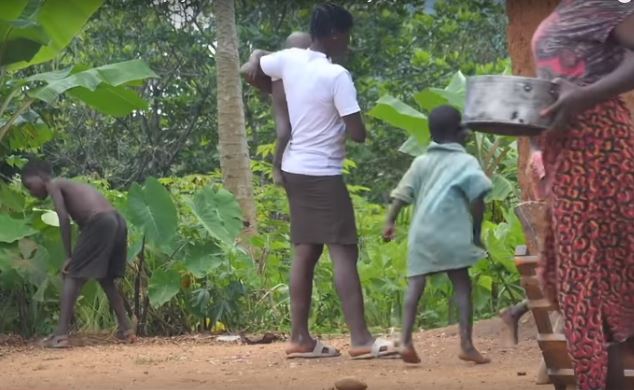Hot Stories
Recent Stories
Unbelievable: Documentary Exposes Cross River Tribe Where Girls Are Sold For N3500 (Video)
Posted by Samuel on Tue 18th Sep, 2018 - tori.ngA new documentary has made a rather shocking revelation about the Cross River tribe where young girls are sold off.

A screenshot from the documentary
People from Cross River as stereotypically known as “loose people”.
However, a new documentary by BBC is now discrediting this handed-down belief and showing the reverse.
In Becheve tribe, in Obanliku LGA, Cross River, parents are appreciative of their daughters (money woman) because they are propelled by the belief that they will be used to settle off debts. With some of these girls as young as six, some are used to play bets, settle hospital bills while others are given off for as little as N3500.
Here, a 10-year-old girl is considered as ripe for marriage and is taught to cook and clean.
The age-long practice imposes that a woman has the roles of having children and bringing money into the home. She is allowed to bring in the man (her customer) to her home and can have sex with him as long as it is not done on the matrimonial bed.
For some, they are borrowed to a lender until he gets his money. During that period, he can do to her as he pleases including getting her to give birth to him. It is only on the condition that the parents are able to pay the incurring interests on the girl is she returned. When she is sold, her father does not share the proceeds he gets from the transaction.
Once married, she is prevented from going to school and is given leftovers meals and is treated as a property. It is a social status determiner because only the rich can afford to have as many as they want. Despite the existence of the Nigerian and cross river law against the practice, it is still adhered to.
At present, missionaries who are in the area are working towards ensuring that this practice is put to an end.
Watch the documentary below:
Source: The Guardian
Top Stories
Popular Stories
Stories from this Category
Recent Stories


















































